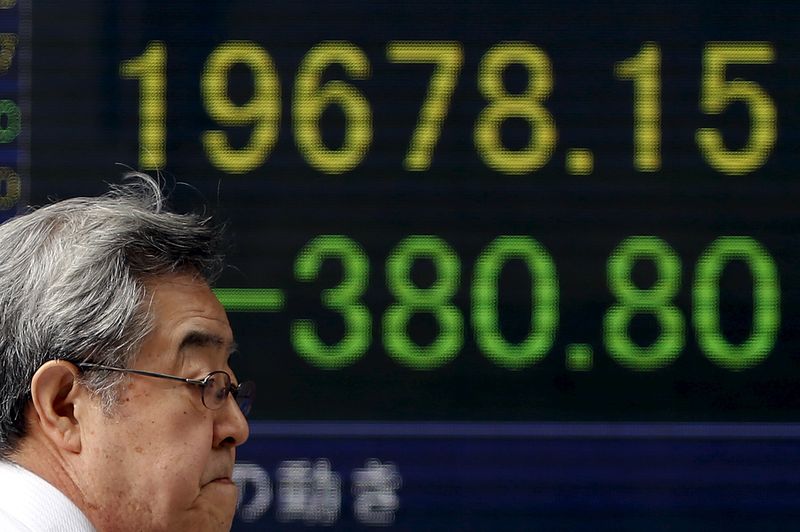This post was originally published on this site
https://i-invdn-com.akamaized.net/news/LYNXMPEB4C07I_M.jpg
Investing.com – Asia Pacific stocks were down on Tuesday morning, with a new COVID-19 strain threatening to trigger a fresh wave of lockdowns and travel restrictions dampening sentiment.
Japan’s Nikkei 225 was down 0.45% by 10:13 PM ET (3:13 AM GMT) and South Korea’s KOSPI fell 0.49%.
In Australia, the ASX 200 slid 0.95% and Hong Kong’s Hang Seng Index inched down 0.03%.
China’s Shanghai Composite was down 0.21% and the Shenzhen Component was fell 0.33%. The U.S. Commerce Department added over 100 Chinese and Russian companies to a new list of firms it says have links to their nations’ militaries.
Anyone looking to sell items that could eventually be used for military purposes to the 58 Chinese and 45 Russia companies on the list will need a license, the Commerce Department said in a statement on Monday. Seven subsidiaries of China’s Aviation Industry Corp., as well as Russia’s Foreign Intelligence Service, were included on the list.
The discovery of a new strain of the COVID-19 virus, also referred to as the B.1.1.7 strain, saw European shares slump to their lowest level since October, with global shares also retreating from the records highs seen during the previous week.
The B.1.1.7 strain was first seen in the U.K. and countries from Canada to Hong Kong have shut their borders to the U.K. to keep the strain out. The U.K. has already imposed a full Tier 4 lockdown in London and southeastern England, with the ensuing travel chaos and the possibility of food shortages coming days before the U.K. is set to leave the European Union.
The discovery, coming just months before COVID-19 vaccines are due to become widely available, renewed investors’ COVID-19 fears.
“What we’ve seen out of the U.K. is a scary thing for the markets, which could incentivize some profit-taking,” Citigroup (NYSE:C) Private Bank chief investment strategist Steven Wieting told Bloomberg.
However, the arrival of a COVID-19 vaccine should be a “game-changer” in the long-run, he added.
Investors are also concerned that the B.1.1.7 strain is reportedly up to 70% more transmissible than the original.
“An escalation of European COVID-19 restrictions in response to fears around a new variant, which is supposed to be faster spreading, should, and did, of course, elicit a negative reaction from prices via the near-term global growth impact. Illiquid conditions will persist through year-end, but dips like this could present more of an opportunity to fade than anything else,” Axi Chief Global Market Strategist Stephen Innes told Reuters.
The gloom overshadowed news from across the Atlantic that the U.S. House of Representatives passed a $892 billion COVID-19 relief package earlier, also passing a $1.4 trillion measure that will keep the government funded for another year.
The relief bill will become law once passed by the Senate, where it is currently under review, and signed by President Donald Trump. The package includes $600 payments to most Americans as well as additional payments to those made redundant during the COVID-19 pandemic and comes just as the larger round of benefits expires on Saturday.

